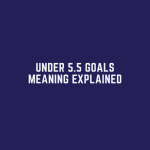Understanding Betting Odds
Betting odds are numerical expressions that represent the likelihood of a specific outcome occurring in a particular event or game. These odds are used by bookmakers to determine how much they will pay out on a winning bet. Understanding these odds is crucial for anyone looking to place a bet and potentially win some money.
There are different types of betting odds formats used around the world, including decimal odds, fractional odds, and moneyline odds. Each format has its unique way of representing the probability of an event happening and how much you could potentially win. It is essential to familiarize yourself with these different formats to make informed betting decisions.
Different Types of Odds Formats
When it comes to placing bets, understanding the different types of odds formats is essential. The three main formats used in sports betting are decimal odds, fractional odds, and moneyline odds. Each format represents the probability of an event occurring and helps bettors make informed decisions.
Decimal odds are the most common format in Europe and Australia. They represent the total payout a bettor will receive, including their initial stake. For example, odds of 2.50 mean that for every unit wagered, the bettor will receive 2.50 units back if the bet wins. On the other hand, fractional odds are typically used in the UK and represent the profit a bettor will make on a successful bet, relative to their stake. An odds of 3/1 means that the bettor will make a profit of 3 units for every 1 unit staked. Meanwhile, moneyline odds are prevalent in the United States and indicate how much profit a bettor would make on a $100 stake if the bet wins. Positive moneyline odds show the profit if $100 is staked, while negative moneyline odds denote the amount needed to be wagered to make a $100 profit.
Calculating Probability from Odds
To calculate the probability from odds, one can utilize a simple formula that involves the odds given. For instance, if the odds are presented in fractional format, the formula to convert these odds into probability involves dividing the denominator by the sum of both the numerator and the denominator. This resultant fraction represents the probability of the event occurring. Similarly, if the odds are in decimal format, one can divide 1 by the decimal odds given to infer the probability in a decimal form.
Converting odds into probabilities is valuable for bettors as it enables them to grasp the likelihood of an outcome occurring based on the odds provided. This conversion allows individuals to make informed decisions when it comes to placing bets, as they can compare the implied probability from the odds against their own calculations or expectations. Understanding how to calculate probability from odds establishes a foundational understanding in the realm of betting, assisting individuals in making more strategic and educated choices when wagering on various events.
Interpreting Odds as Implied Probability
Implied probability is a concept that helps bettors understand the likelihood of an outcome based on betting odds. In essence, it represents the percentage chance of an event happening as suggested by the odds. For instance, if the odds are 2.00 for a certain outcome, the implied probability would be 50% as the event is equally likely to happen or not.
By converting odds into implied probability, bettors can gauge whether a bet is worth making or not. If the implied probability is higher than what you believe the actual chances are, it might indicate that the bet offers value. On the other hand, if the implied probability is lower than your assessment of the true likelihood, it could suggest that the bet is not favorable. Understanding how to interpret odds as implied probability can be a valuable skill in making informed betting decisions.
Factors That Influence Odds
Various factors play a crucial role in determining the odds offered by bookmakers. One primary factor is the betting volume on a particular outcome. When more bettors choose a specific option, bookmakers adjust the odds to mitigate potential losses. Additionally, player injuries, team performance, and other game-related information can significantly impact the odds offered.
Moreover, external factors such as weather conditions, venue, and public sentiment towards a team can also influence the odds. Bookmakers constantly monitor these variables to ensure their odds accurately reflect the perceived probabilities of different outcomes. By staying informed about these influencing factors, bettors can make more informed decisions when placing their wagers.















